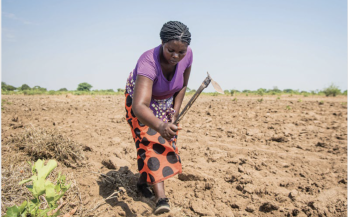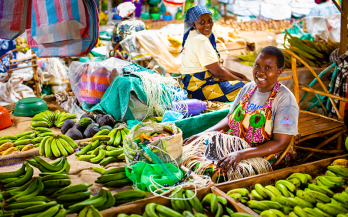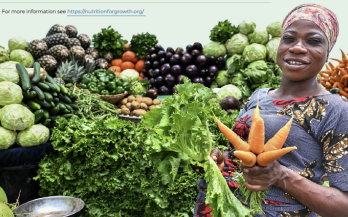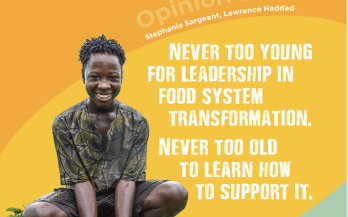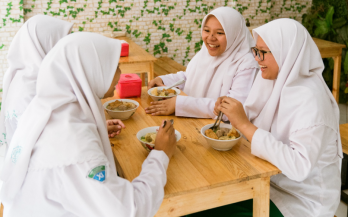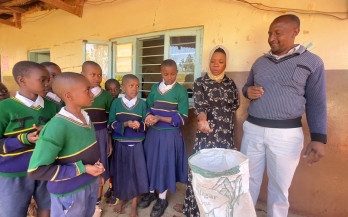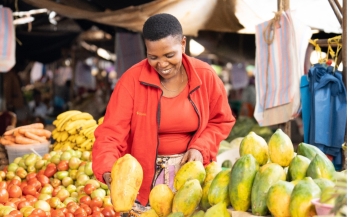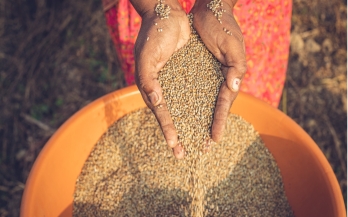- 29/08/2025
Zambia has demonstrated strong political commitment to food systems transformation while grappling with persistent systemic vulnerabilities that threaten progress toward sustainable food and nutrition security.
As a landlocked country in southern Africa with a population largely dependent on climatesensitive smallholder agriculture, Zambia faces the urgent imperative to build resilience while addressing deep-rooted challenges of malnutrition, poverty, and environmental degradation.
- 28/08/2025
The Countdown then undertook a consultative process to select a set of 50 indicators across these themes, which constitutes the global indicator framework. The Countdown publishes annual monitoring updates and additional analysis to support the transformation of food systems so they become equitable, sustainable, and resilient and positively contribute to achieving the 2030 SDGs and other global goals.
- 05/08/2025
The Government of Benin played an active role in the 2021 N4G Summit, demonstrating a strong
commitment to reducing malnutrition. In 2021, through the Permanent Secretariat of the National
Council for Food and Nutrition (SP/CAN), Benin outlined several ambitious goals aimed at ensuring
optimal nutrition for all its citizens. To achieve its vision by 2030, Benin set several objectives in 2021
- 26/08/2025
We know in our bones that youth must be part of the solution to the key crises facing
our planet – but why and how exactly? Here we provide government policymakers,
business people, civil society members and development partners in the food systems
space with some ways to advance meaningful youth engagement.
Ethiopia faces persistent malnutrition and emerging diet-related challenges. Nutrition for Growth (N4G), a pledging movement in which the world’s leaders have committed to centre nutrition, offers a platform to mobilize multisectoral action and accountability. GAIN offers technical expertise in food systems and nutrition governance, to support Ethiopia translate its national strategies in its goal of supporting the Government of Ethiopia (GoE) in accelerating its progress towards Food System Transformation.
Four years after the landmark 2021 United Nations Food Systems Summit (UNFSS), the urgency of transforming food systems is growing. With just five years left until the 2030 Sustainable Development Goals (SDGs) deadline, momentum is growing, but so are the challenges. The UNFSS+4 Stocktake, held in July 2025, reflects a remarkable evolution in how countries and partners are reimagining food systems to be more inclusive, sustainable, and resilient. Since the first Stocktake (UNFSS+2), countries have moved from vision to action: 128 nations now have national food systems pathways, 155 have appointed National Convenors, and 39 have revised their pathways into detailed action plans. Voluntary reporting has increased, signalling strong political commitment.
- 20/08/2025
The global burden of malnutrition, poor mental health, depression, and noncommunicable diseases (NCDs) continues to grow, contributing significantly to mortality
and poor health, reduced productivity, and economic stagnation. With over 60% of the
population engaged in the workforce and spending more than half of their adult lives at
work, the workplace offers a strategic platform to address these challenges. One
important aspect of worker wellbeing is nutrition, which fuels the body, improves
cognitive and immune function, and reduces sick days and NCD risk.
GAIN Tanzania is at the forefront of efforts to tackle micronutrient deficiencies through biofortification, an approach that enhances the nutritional content of staple crops. One of its most impactful initiatives has focused on high iron beans (HIB), a locally accepted, nutrient-rich variety introduced through partnerships with schools and farming communities. By connecting farmers to institutional markets and supporting local seed systems, GAIN is creating a sustainable, scalable model for improving diets and livelihoods. In this interview, Prisca Kokutona Rwezahura, Country Director -GAIN Tanzania, reflects on this journey- sharing insights into policy, partnerships, and what’s next for biofortification in the country.
- 15/08/2025
Rwanda faces persistent challenges with malnutrition, and there is increasing interest in the country in taking a food systems approach to tackling it. However, getting this new approach into the development and agricultural sector’s agendas requires understanding the landscape of actors involved. In response, the Ministry of Agriculture and Animal Resources and the Global Alliance for Improved Nutrition commissioned an analytical mapping of actors involved in nutrition and the food system in Rwanda, which was implemented by the Swiss Tropical and Public Health Institute. This was accomplished by conducting a stakeholder mapping at district and national levels through key informant interviews and Net-Map analysis as well as a policy landscape analysis.
- 12/08/2025
Clear measures of progress on food system transformation can provide decision-makers with the visibility to course-correct to realise desired impacts and can help ensure accountability. To this end, there is a need to develop, test, and validate novel methods and metrics for assessing food systems transformation. To ensure that such work is grounded in local food system stakeholders’ needs, GAIN consulted national stakeholders across four Asian countries (Bangladesh, India, Indonesia, and Pakistan) to identify priority indicator gaps for monitoring food systems transformation. These consultations drew from an analysis of each country’s food system transformation pathway, existing indicators, and the results from similar stakeholder workshops in Africa. National stakeholder workshops were held with diverse participants in three of the countries, while stakeholder interviews were used in India.
Across all countries, some similar themes emerged, such as sustainable and climate-smart agriculture, small and medium-sized enterprises, food safety and quality, consumption behaviour, policy alignment, and food system governance. There was a strong focus on policy actions, sustainability, and resilience as crosscutting themes. Women and youth were mentioned as groups requiring particular attention in metrics development, including the wage disparities between men and women, inclusion of women and youth in decision-making process, and youth access to finance and agri-business. The results from the workshops will be used to inform GAIN’s future work in developing metrics and methods to understand and help countries track their food systems transformation.
